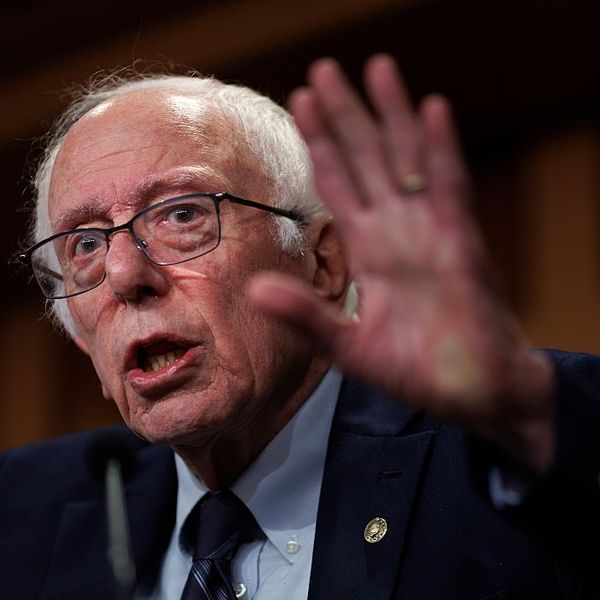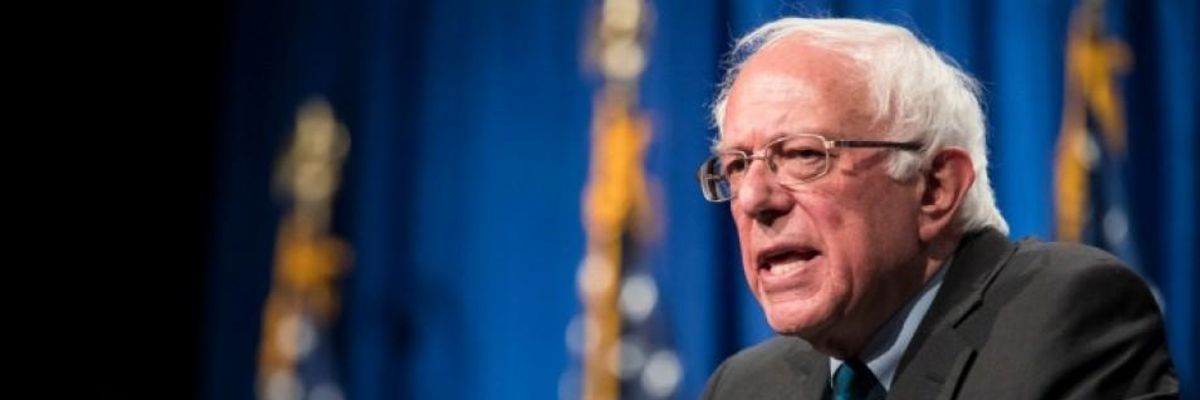As the Democratic candidates for president continue to roll out policy positions, many pundits are classifying them as centrists (such as former Vice President Joe Biden) and radicals (such as Senator Bernie Sanders and a few others). But let's not confuse semantics and substance. Voters want and need a different standard: Which candidates have the most pragmatic solutions to America's woes?
It is clear to most Americans that our country faces several challenges. According to a Gallup poll from May 2019, 63% of Americans are dissatisfied with the way things are going in our country. Trust in the government is also at a low, with only 17% saying that Washington will do what is right "just about always" or "most of the time."
"Sen. Bernie Sanders has been labeled a radical for advocating for a publicly-financed health care system. Yet other high-income countries finance their health care overwhelmingly through the public sector, with much lower costs and higher life expectancy than in the U.S."The US is now an outlier among high-income countries, and not in a good way. Compared to 25 peer countries, the US ranks poorly when it comes to life expectancy, maternal mortality, child poverty and income inequality. The situation is stark, especially for a country that prides itself on global leadership.
Yes, the US is relatively rich, with a GDP per capita that ranks fifth out of the 26 countries. However, the cumulative national income is heavily concentrated among the rich, and the US has the very highest income inequality out of the 26 countries.
On social indicators, the situation is dreadful. The US life expectancy is tied with the Czech Republic in the second to last slot of the 26 countries. The US has the highest maternal mortality rates of the 26 countries. Child poverty levels are the third worst among the countries with recent data. All other countries have paid family leave for those with newborns, as well as guaranteed paid vacation, while the US does not guarantee a single day for either.
In fact, repeated rounds of tax cuts for corporations and the rich have contributed to the soaring public debt and the US deficit relative to GDP is now the very highest of all 26 countries. If the US wants to provide social services, we will have to reverse some of the tax giveaways of past years.
While the US faces enormous problems, other high-income countries have implemented policies that show us that practical solutions are possible. Yet when presidential candidates call for these pragmatic solutions, they are attacked for being
radical -- even though many of these policies are already being implemented abroad.
Sen. Bernie Sanders has been labeled a radical for advocating for a publicly-financed health care system. Yet other high-income countries finance their health care overwhelmingly through the
public sector, with much lower costs and higher life expectancy than in the US, which relies on private health financing for around half of total health spending.
The same goes for Sanders' call for publicly-financed
higher education. Almost every other high-income country has tuition costs that are a tiny fraction of those in the US. Meanwhile, the US has saddled a generation of young people with
$1.5 trillion of
student debt.
Sanders and others are labeled radicals for supporting the
Green New Deal, a proposal that calls for the US to move from fossil fuels to clean energy, with the goal of curbing greenhouse gas emissions while creating high-paying jobs. Yet every other high-income country is sticking with the Paris Climate Agreement -- which will require decarbonizing the energy system in order the meet the goals of the agreement.
Only the US under
Donald Trump has announced the intent to withdraw from that agreement.
Sanders and others are labeled radicals for
advocating labor rights for
workers, including paid family leave, sick leave and vacation time for all. Yet these protections are commonplace in the other high-income countries.
The ruling class -- dominated by
billionaires like
Donald Trump and the vested interests that prop him up -- have played the same name-calling game for decades. Legislate tax cuts for the wealthy, turn a blind eye to polluters, shut down
tax audits on the rich,
abandon antitrust laws, put
corporate lobbyists in charge of the regulatory agencies and then attack anyone who calls foul a "radical."
"The ruling class--dominated by billionaires like Donald Trump and the vested interests that prop him up--have played the same name-calling game for decades."The poverty of our political lexicon adds to the confusion. What Sanders and other so-called radicals are advocating is routinely called "
social democracy" abroad -- a phrase used infrequently in the US. It provides a pragmatic course that delivers lower inequality, better health care and improved work conditions, together with high living standards and a dynamic and innovative private sector. Those who live in social democracies rank high on surveys of happiness, with the citizens of Finland, Norway and Denmark in the lead, while the US ranks in the
bottom half of the 26 countries.
National politics from the 1930s to the 1980 had followed the broadly social-democratic path established by
FDR's New Deal. In 1980, Ronald Reagan's election ushered in almost 40 years of tax cuts for the rich, union bashing, cuts to social programs (including the denigration and elimination of "welfare") and
rising inequality. Since then, America has gotten richer but vastly more unequal.
Trump now proposes to "make America great again," not by ensuring affordable health care and free college tuition, or by building modern and sustainable infrastructure, but by stripping away social services, unleashing more
pollution and stoking hate and fear vis-a-vis minorities, refugees and foreigners.
Such divisiveness won't turn America around, much less make it great. For too long, our national politics and policies, fueled by corporate campaign contributions, have put corporate greed ahead of the common good. It's time to stop labeling pragmatic solutions as radical and out of reach, and to adopt effective strategies that have been proven to work in many other high-income countries.



